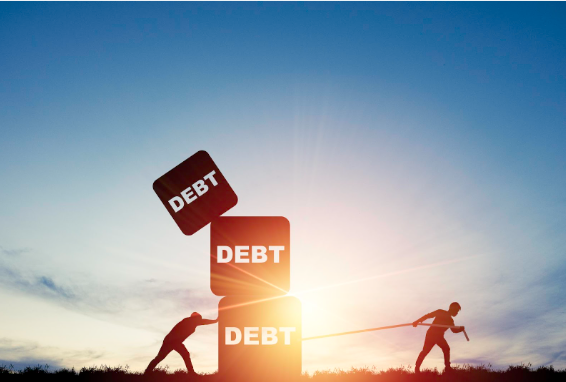
Tips to Clear Off Your Debt
Freedom from debt sounds like a challenging dream, isn’t it? The fact is, getting there takes commitment and discipline, but it’s well worth it. You can completely change your financial situation in Canada and get out of debt by making some preparations, following some practical advice, and getting some assistance.
A common issue for many Canadians is debt. It can feel stressful to have mortgages, student loans, credit card debt, and vehicle loans. But hold onto hope—the debt cycle can be broken.
Common Types of Debt
Understanding the many debt situations you could run into financially is crucial. Typical types include:
- Mortgages
- Car loans
- Credit card debt
- Student loans
- Personal loans
Debt Can be Expensive
Debt encompasses more than just the main balance; it also includes the interest that accrues over time. Understanding the true cost of borrowing might help you make smarter financial decisions and prioritize paying off high-interest debt first.
Creating a Realistic Budget
You need a strong foundation to get out of debt. A realistic budget provides you control over your finances and helps you know where your money is going. List your income and expenses first, then monitor your spending to make sure you’re staying inside your budget.
Emergency Fund: The Safety Net

An emergency fund serves as a safety net for your finances, keeping you from incurring debt because of unexpected needs. You’ll feel secure and have peace of mind if you have a well-funded emergency fund.
How Much to Save
Having three to six months’ worth of living expenses set aside in your emergency fund is a good idea. This could change depending on your particular situation, but it’s a good place to start to make sure you’re ready for any emergency.
Tips to Clear Off Your Debt Debt
Debt Snowball Method
The debt snowball strategy places a higher priority on paying off lesser debts than bigger ones. With each loan you pay off, you feel a sense of success that helps you move forward. This is how it goes:
- Have your debts listed from smallest to largest.
- Put more money towards the smaller debts.
- Allocate any extra funds to the smallest debt until it’s paid off.
Debt Avalanche Method
With the debt avalanche strategy, the loans with the highest interest rates are paid off first, which ultimately saves you more money in interest payments. Here is how to put this plan into action:
- List out the debts from the highest to the ones with the lowest interest rate.
- Pay the minimum on all debts, but more on the ones with the higher interest rate.
- Allocate any extra funds to the highest-interest debt until it’s paid off.
Refinancing and Consolidation Options
When you refinance, you take out a new loan, usually with a reduced interest rate, to replace your existing debt. This can enable you to reduce your interest costs and speed up your debt repayment. A debt consolidation loan combines several loans into a single loan, streamlining your payments and possibly lowering your interest rate. This can help you manage your debt more effectively and easily.
Credit Counselling Services

To manage your debt and improve your financial status, credit counselling services provide direction and support. They can make a customized debt management strategy, offer help in setting up a budget, and live debt-free.
Bankruptcy and Consumer Proposals
Legal processes such as bankruptcy and consumer proposals offer relief from excessive debt. Both choices have long-term effects and ought to only be thought about as a last resort. If you want to know if these solutions are right for you, talk to a debt expert. Consumer proposals are far better because you won’t lose your assets.
Student Loan Forgiveness
The Repayment Assistance Plan (RAP) and the Canada Student Loan Forgiveness for Family Doctors and Nurses are two student loan forgiveness initiatives offered by the Canadian government. For eligible borrowers battling with student loan debt, these programs may offer financial assistance.
Lifestyle Changes for Financial Freedom
Cutting unnecessary expenses
Review your spending patterns and look for places where you might save money. This can entail cutting back on eating out, cancelling subscriptions, or seeking less expensive entertainment options.
Increasing Income
Increase your income by taking on side jobs, freelancing, or looking for a career that pays more. You can reduce your debt faster and get out of debt sooner if your income increases.
Building good financial habits
Once you’re debt-free, it’s essential to keep up good spending practices. Keep setting aside money for savings and investing so that your financial future is protected.
Planning for the Future
Make a plan to carry out your long-term financial goal. This could involve putting money aside for a down payment, making retirement plans, or paying for your child’s school. Maintain your focus on your objectives and take advantage of financial freedom.
Conclusion
No matter how burdensome your debt is, you can get rid of it. You must first believe that you can because you can! We are here to help you find the support you need. EmpireOne Credit believes that everyone can be debt-free. Your debt can be reduced by up to 80%, and interest will stop immediately. To arrange a free consultation, contact us at (416) 900-2324. Being debt-free feels good!





